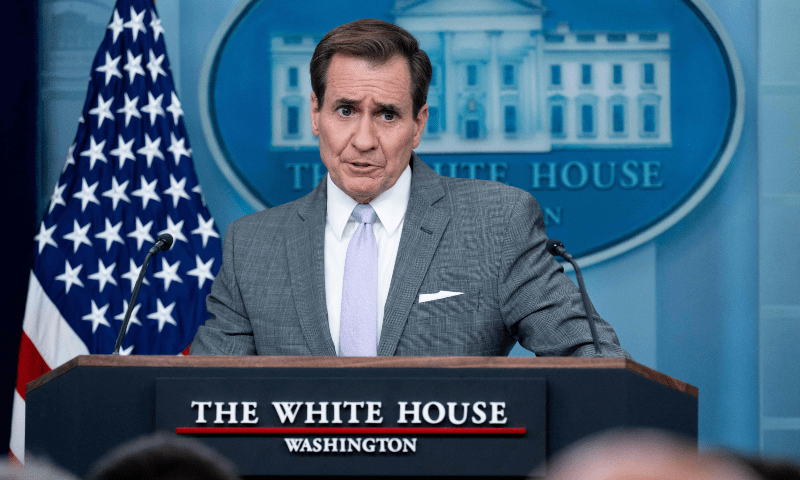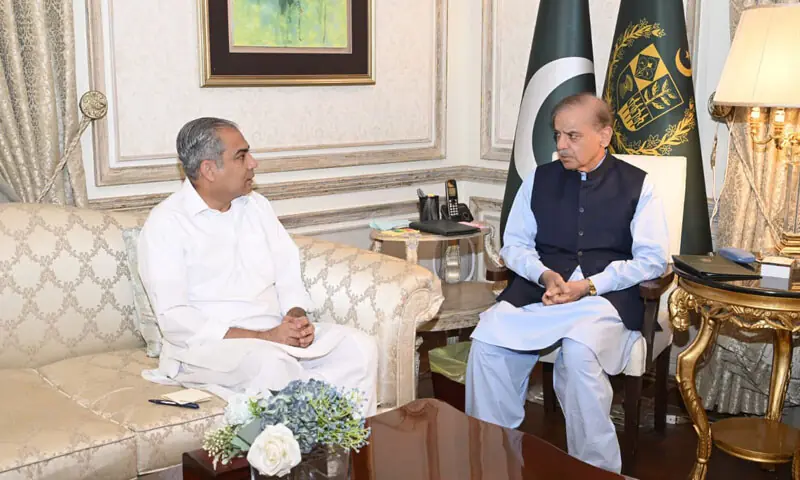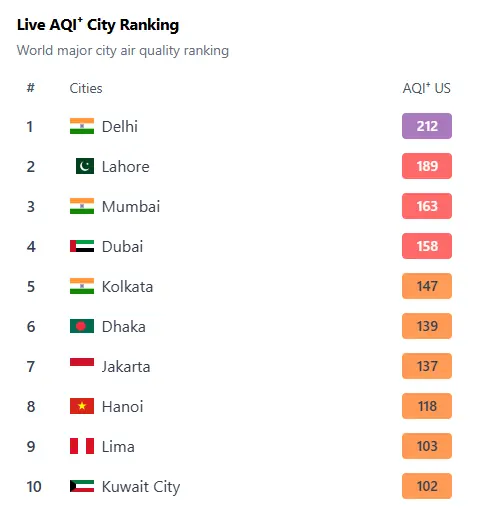Pakistan has played a critical role in US counterterrorism efforts over the years, but has never been a formal ally subject to treaty obligations, senior White House official John Kirby has clarified.
This nuanced positioning underscores the delicate and complex nature of US-Pakistan relations, shaped by shared security concerns and divergent strategic priorities.
At a briefing in Washington, White House national security communications adviser John Kirby candidly addressed the nature of the relationship between the United States and Pakistan, highlighting the absence of any formal defense pact.
“Pakistan was never a technical ally of the United States. I mean, there was no alliance treaty with Pakistan,” he said in response to a question.
Despite this, Kirby emphasized the long history of cooperation between the two countries, particularly in the fight against terrorism in the volatile border region between Afghanistan and Pakistan.
“Certainly, for many, many years over the last two decades, we partnered with Pakistan as appropriate to address the terrorist threat that still exists in the backbone between Afghanistan and Pakistan,” he explained.
In August last year, State Department spokesman Vedant Patel reaffirmed the United States’ commitment to preventing groups such as the banned militant group Tehreek-i-Taliban Pakistan (TTP) from using Afghanistan as a base to launch terrorist attacks against countries. neighbors.
The following month, State Department spokesman Matthew Miller said the United States would remain “shoulder to shoulder with Pakistan in its fight against terrorism.”
A US State Department report released in December noted that Pakistan has made substantial progress in combating the financing of terrorism and combating regional extremist networks.
In the most recent bilateral engagement, Interior Minister Mohsin Naqvi and outgoing US Ambassador Donald Blome discussed strategies to address global challenges such as terrorism.
“We will remain committed to working with Pakistan on common threats”
At the same time, Kirby also acknowledged the human cost of terrorism in Pakistan, acknowledging that its citizens continue to suffer from cross-border violence.
“We recognize that Pakistan is still… the Pakistani people are still victims of terrorist violence that comes from across that border.
“And while we are in office here, we remain committed to working with Pakistan to address those common threats and challenges. And that’s not like that, that hasn’t changed. It’s not going to change,” Kirby said during the briefing.
According to the Ministry of the Interior, 351 civilians and 573 law enforcement personnel (LEA) lost their lives in 1,566 terrorist incidents in the first 10 months of 2024.
This recognition reflects a broader trend in the Biden administration’s policy toward Pakistan: focusing on shared security challenges while staying away from deeper strategic commitments. Washington’s reluctance to treat Pakistan as a formal ally reflects its broader approach to avoid becoming involved in Pakistan’s domestic political dynamics.
For example, when asked to comment on alleged dismissals at a PTI rally on November 26, State Department spokesperson Matthew Miller maintained a measured stance.
“We want any protest to be peaceful, and we want the government of Pakistan, as with any government in the world, to engage in peaceful protests with respect and deal with them peacefully,” he said.
This careful approach extends even to strategic issues such as Pakistan’s missile program. Last month, when the United States sanctioned three Pakistani companies for their alleged involvement in supporting the country’s missile program, deputy spokesman Patel clarified the rationale behind the decision.
“These sanctions that we apply to Pakistan are rooted, as I have said three times, in our long-standing concerns about its long-range ballistic missile program. It does not influence other areas of cooperation between us and Pakistan,” Patel said.
Therefore, the Biden administration’s message signals a deliberate effort to balance criticism with preserving a functional working relationship, particularly on counterterrorism.
At the same time, the Pentagon has consistently highlighted its close ties to Pakistan’s military establishment. Spokesman Maj. Gen. Patrick S. Ryder, for example, emphasized the enduring nature of this relationship while discussing counterterrorism efforts at a recent briefing.
“We value Pakistan as a partner in the region and have worked closely with Pakistan on counterterrorism efforts in the past and will continue to have those conversations,” he said.
In another statement, Ryder underlined Washington’s commitment to supporting Pakistan in the fight against terrorism. “In terms of Pakistani military strategy, as we have discussed before, the United States of course values Pakistan as a partner when it comes to areas such as counterterrorism,” he said, adding that such discussions would continue.
This careful balancing act – recognizing Pakistan’s importance in addressing shared security concerns while avoiding deeper strategic obligations – has defined the Biden administration’s approach. It reflects the enduring complexity of ties between the United States and Pakistan, shaped by decades of collaboration, mistrust, and shifting geopolitical priorities.








